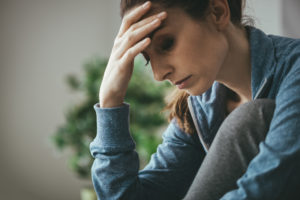
Depression can cause unexplained physical symptoms such as back pain or headaches. This pain may be the first sign of depression or even the only sign. This could mean that people are not even aware they are suffering from depression.
When people have to deal with pain, it can affect mood over time. Chronic pain can cause several problems that lead to depression and include stress and trouble sleeping. Researchers have also found a link not just with pain resulting from an injury but also in patients with health conditions such as heart disease or diabetes.
For those suffering from depression and pain, it is important to focus on treatments that offer help with both conditions. Separate treatments may be needed for pain and depression, but working on them together will help you see better results.
Depression and Pain Treatments
Talk therapy, also called psychological counseling (psychotherapy), can be effective in treating both conditions. Stress-reduction techniques such as meditation, exercise, journaling, and other strategies have shown promise for those seeking treatment for depression and pain.
Pain rehabilitation programs can offer a team approach to treatment, including psychiatric and medical aspects. Experts believe that treatment for co-occurring pain and depression may be most effective when it involves various treatments.
Antidepressant medications may be able to help relieve both depression and pain because of shared chemical messengers in the brain. However, these come with a price. The side effects of antidepressants can include nausea, weight gain, sleep problems, diabetes, and even thoughts of suicide. This type of medication for depression should be taken as a last resort after lifestyle changes have been attempted.
Getting the right treatment before symptoms worsen is important. At the first sign of depression or pain, talk to your doctor and discuss your options before it gets worse.